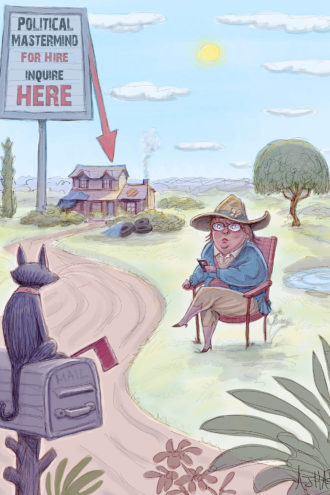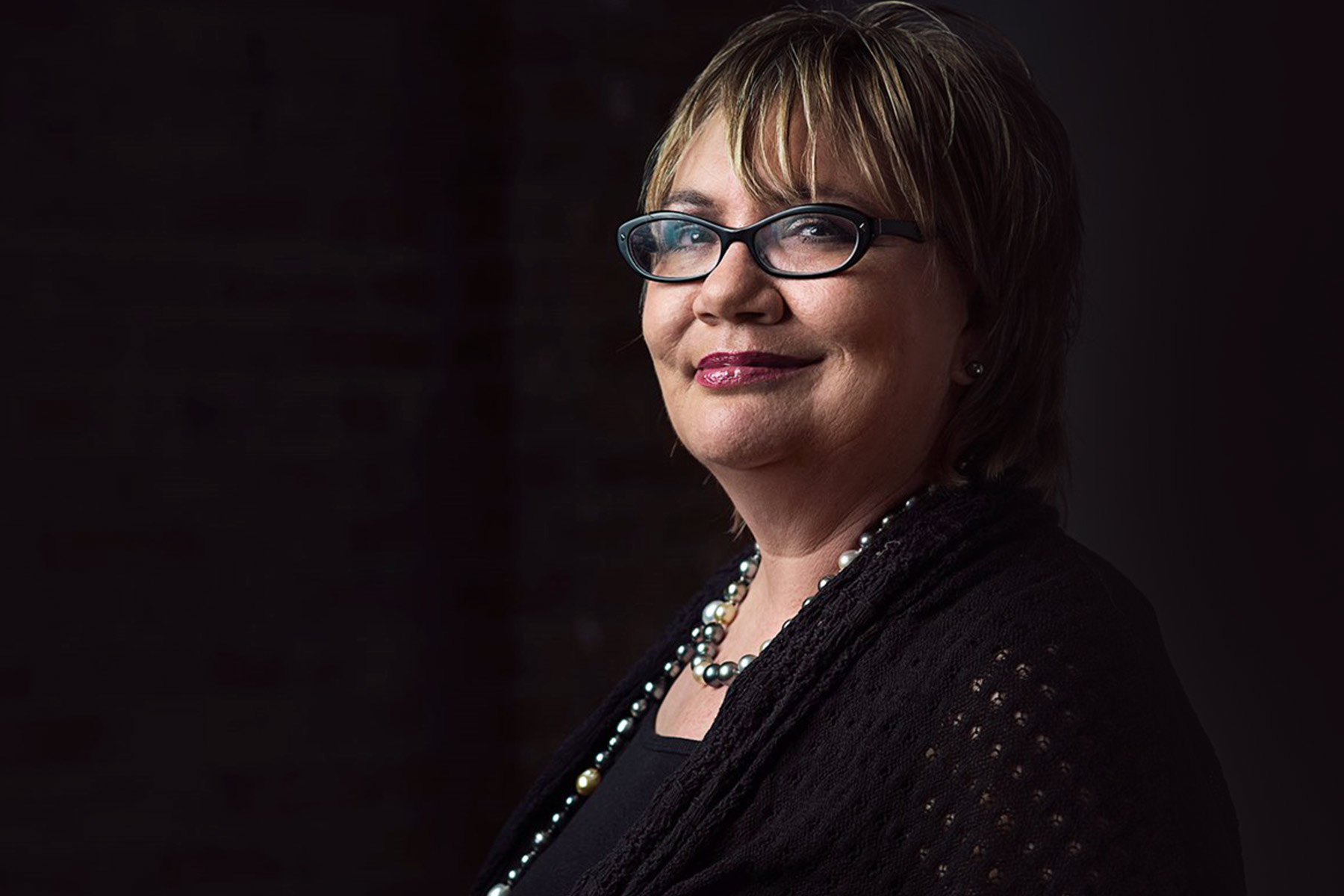Anna Casey, the longtime Dallas-area political consultant, looked at the group of City Council candidates assembled before her in Councilman Philip Kingston’s house, near Lower Greenville. She told them that she saw greatness in each. “As you guys know, you’re all my candidates. Everyone in here is my candidate,” she said. It was spring, before the May election, and Casey was addressing four incumbents (Kingston, Scott Griggs, Mark Clayton, and Adam Medrano) and three challengers (Candy Evans, Omar Narvaez, and Dominique Torres). “And I wouldn’t pick you if I didn’t see a winner in you, if I didn’t see that visionary leadership that you can and have brought or will bring to the city.”
 Then Casey made a slight pivot, toward herself. “And, you know, quite frankly, there’s some things that I believe in,” she told the group. “I would like to see a Dallas—I grew up in Dallas, this is my hometown—I would like to see a Dallas for its people, governance that’s enlightened, and for us to be the greatest place in Texas, one of the greatest places in the world.” Although light on specifics, she concluded that it was this shared vision that made this group one worth belonging to. “We’re a natural team.”
Then Casey made a slight pivot, toward herself. “And, you know, quite frankly, there’s some things that I believe in,” she told the group. “I would like to see a Dallas—I grew up in Dallas, this is my hometown—I would like to see a Dallas for its people, governance that’s enlightened, and for us to be the greatest place in Texas, one of the greatest places in the world.” Although light on specifics, she concluded that it was this shared vision that made this group one worth belonging to. “We’re a natural team.”
In this past election, much was written about the “shadowy Super PAC” (D Magazine’s words) named For Our Community, which is overseen by another longtime Dallas-area political consultant, Mari Woodlief. The attention was understandable. FOC raised nearly $200,000 and spent heavily trying to unseat Kingston, failing spectacularly. I wrote about Woodlief and FOC in August 2015 (“The Most Powerful Woman in Dallas Politics”) and said in that piece that Woodlief’s power-brokering raised three important questions: who is she, why is she so powerful, and why do so many people think this is a bad thing?
In that contentious race, two years ago, Woodlief was involved in five races. Casey, this past election, ran seven. That’s half the City Council. And she worked on one runoff campaign, as well as the runoff campaign for Lori Kirkpatrick in a Dallas ISD trustee race. So it seems fair to ask the same first two questions I asked of Woodlief. We can tweak the third: is running seven City Council races in the ninth-largest city in America from a small house in Lavon, Texas, a bad thing?
“[Two] of the things we’ve always embraced,” Casey told the group, “are accountability and transparency.” Casey declined comment for this column. But as we’ll see, answering those questions with any degree of accountability or transparency is a challenge.
Anna Casey was born Anna Villasana, the daughter of the late Rudy Villasana, a former Crozier Tech graduate and U.S. Army pilot who for years ran Villasana’s Food Store on Harry Hines, just north of downtown. Beyond that, Casey’s upbringing and her early career, through the 1980s, remain a mystery, given that she declined an interview. Though she did say in a text: “I am a private person and I really don’t do interviews. Flattered that you think I am a story but I know I am not. Also think it would be unprofessional to talk about my clients or their campaigns.”
We know that by the early 1990s she was a campaign organizer on Dallas political races with Sharon Boyd, one of the first great Dallas internet trolls. Boyd, best known as an outspoken critic of the American Airlines Center (don’t visit her once-popular protest site, Dallasarena.com, unless you’re a fan of hardcore Japanese pornography), disavowed Casey in 1997, after Casey’s first victorious council client, John Loza, voted in favor of the arena deal.
“I have never found a more negative, more aggressive person on the political scene in this city,” Monica Greene toldrnD Magazine a few years ago. Attorney Dan Wyde put it more succinctly: “She’s an insultant, not a consultant.”
By that time, Casey was no longer a Dallas resident. Since 1995, she has lived in the tiny town of Lavon, a rural area in southeast Collin County—closer to Greenville, Texas, than to downtown Dallas. But her work in Dallas continued, as she managed campaigns for everyone from Domingo Garcia to most of the Medrano clan (Adam, Pauline, Carlos).
A bit of disclosure: I worked on Angela Hunt’s campaign in 2011. I think Casey did, too. I remember seeing her at an all-staff kickoff meeting. But Hunt is so smart and detail-oriented that she effectively ran her own campaign. I directed communications, in the sense that I would read what Hunt would write and say, “Good job.” I have no insider knowledge of Casey’s strategy, style, or substance, despite her well-established reputation as a rabid-dog campaigner.
She’d earned such repute for her work in earlier races. The race she ran for Pauline Medrano against restaurateur Monica Greene was particularly nasty. After Medrano’s runoff victory, Casey reportedly called Greene’s campaign manager and left the following voicemail: “You sorry-ass loser, isn’t your candidate going to call Pauline? You rat pack of shit. You guys have no class. Adios.”
“I have never found a more negative, more aggressive person on the political scene in this city,” Greene told D Magazine a few years ago. In that same article, attorney Dan Wyde put it succinctly: “She’s an insultant, not a consultant. She is hired to go out and malign people.”
This squares with what I’ve heard from other candidates on background, ones who say they fought her when she wanted to get too personal and attack their opponents unfairly. It is also, frankly, one of the reasons candidates go to Casey. They want to win at any cost.
Other reasons given for choosing Casey: she comes strongly recommended by well-respected progressives like Kingston and Griggs, and candidates need their support; there are only a handful of campaign managers with experience running races in Dallas; and she has experience in running successful campaigns.
The latter is true to a point. One former client, despite saying Casey offered little help in terms of strategy, says, “She knows every precinct chair in my district by name.” Candy Evans told me, “I have nothing but nice things to say about Anna,” and described her as “a workhorse.” Evans, a real estate blogger, did acknowledge that Casey “really knows East and West Dallas, but I do think she didn’t quite understand North Dallas. I had to tell my block walkers, You can’t just go up to a gated $1 million home and knock on the door. People will answer it with a gun!”
Evans says Casey wasn’t her only consultant, despite Casey’s claim that Evans was one of “my candidates.” Indeed, four other consultants told me they worked to help Evans with her campaign—three of them pro bono—because it was in such disarray and they wanted to help her win. “There are 56,000 people in her district, and her walk list had 1,500 people on it and no map,” one consultant says. “People would just drive around aimlessly. I had to make them maps out of pity.” Evans was handily beaten by incumbent Lee Kleinman, 63 to 37 percent.
I would say the poor showing is the reason Casey hadn’t, as of this writing, been paid by the Evans campaign, but not being paid by campaigns she works on is common for Casey. Campaign finance reports for the past 12 years show sporadic payments by some members of her group and none or very little from others. This past campaign, she was paid amounts ranging from zero by Evans, Medrano, Griggs, Clayton, and Narvaez; $1,000 by Torres; and about $2,500 by Kingston. Griggs and Kingston did pay her surrogate, recent SMU graduate Callie Pruett, more than $6,000, and Griggs paid another young Casey staffer, Huey Fischer, $6,000. For candidate races, this is small potatoes compared to amounts Casey has been paid in the past—e.g., $25,000 by Clayton in 2015 and $22,000 by Kingston in 2013. This pales to the astounding $177,000 paid to her by the super PAC Citizens Against the Taxpayer-Owned Hotel over two months in 2009.
More payments could and probably will show up after the runoff, but it’s an erratic billing process, one that makes it all but impossible to say with certainty just what races Casey really worked on. (The seven mentioned here had to be independently confirmed.)
For example, there is no paper trail connecting Casey to the races in District 2 and District 6—Medrano and Narvaez, respectively. These are the two races in which allegedly fraudulent mail-in ballots have been confiscated by the district attorney’s office. The only person who has been paid by both of those campaigns is not Casey; it’s Robert Medrano, who got $7,500 combined. This is interesting given the allegations of mail-in fraud that have dogged members of the Medrano family. In Robert’s 1988 school board race, one in four of his votes from a certain precinct were found fraudulent. Another erstwhile Casey client, former Dallas County Justice of the Peace Carlos Medrano, was convicted in 2012 of illegally soliciting votes.
When you add up these facts—Casey was in charge of half the council races in Dallas; has an apparent business model that includes often working without pay; is a supposed streetwise consultant who doesn’t live in Dallas; and in the past has had ties to candidates plagued by voter fraud allegations—it’s hard to say her involvement in the last election doesn’t deserve scrutiny. Because if nothing else, it is worth noting that the candidate “team” that always talks about accountability and transparency chooses a leader who likes to operate in the shadows.





